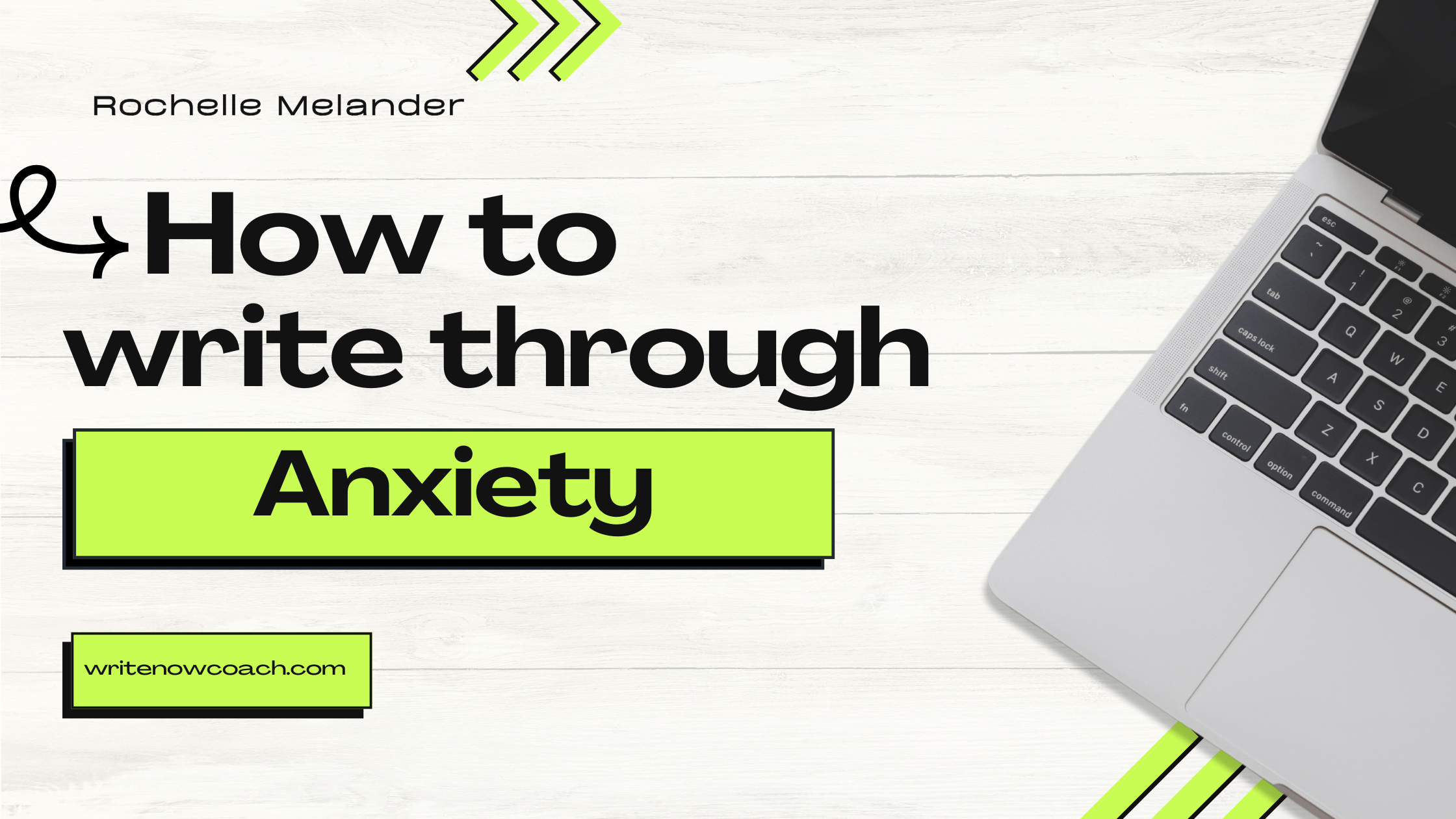How to Write Through Anxiety
by Rochelle Melander
“Worrying doesn’t empty tomorrow of its sorrow, it empties today of its strength.”
― Corrie Ten Boom
Having trouble concentrating this week?
You’re not alone.
With the United States election looming, seven out of ten adults report that politics are increasing their stress levels.
But for many of us, if it weren’t the election, we’d be worrying about something else: our health, the kids, or getting our next assignment.
It’s called anticipatory anxiety. It happens when we feel dread or fear about a future event, usually something we can’t do much about—like flying, health news, or an election. We play the what if game about things we can’t control—and we end up wasting time and energy.
Here are some ways to stay sane and keep writing:
Set boundaries
If you’re like me, you check the big sites a few times a day—looking for the latest information. Stop! Reading news and social media fuels anxiety. Instead, schedule a definitive time each day to read news. It might be helpful to follow your daily online reading with something nourishing, like a walk.
Try this: Stay offline until the bulk of your writing work is done for the day. If you can’t do that because of work, then create a buffer zone around your writing time and avoid going online immediately before writing.
Take on small, specific assignments.
When my kids were little, and I’d ask them to clean their rooms, they’d stand in the middle of the mess and say, “I don’t know where to start.” That’s how I feel this week. I know I have a lot to do, but I don’t know where to start.
Try this: Look at your tasks and list 5-10 small assignments. For each writing session, choose one. Then set a timer and go.
Play a game.
If you can’t concentrate or if your brain is in worry mode, spending 10-20 minutes game can engage your prefrontal cortex. Try playing a working on a challenging word game, putting together a puzzle, or playing a video game like Tetris.
Try this: If you’re feeling stuck or worried, take a break from your writing and play a short game. Then go back to writing. See if it helps.
For the win
Each time we battle through distractions to show up and scribble down our thoughts, we win. Some weeks, like this one, we have more distractions. Keep practicing showing up and putting down words. You’ll get better at dismissing the distractions and focusing. I promise!

Write Now! Coach Rochelle Melander is an author and ADHD-trained professional certified coach. She’s helped hundreds of people write and publish books. If you’re struggling to start or finish a project, connect with Rochelle to create a personalized plan for overcoming procrastination, dealing with distraction, and staying focused. Book a private consultation.









